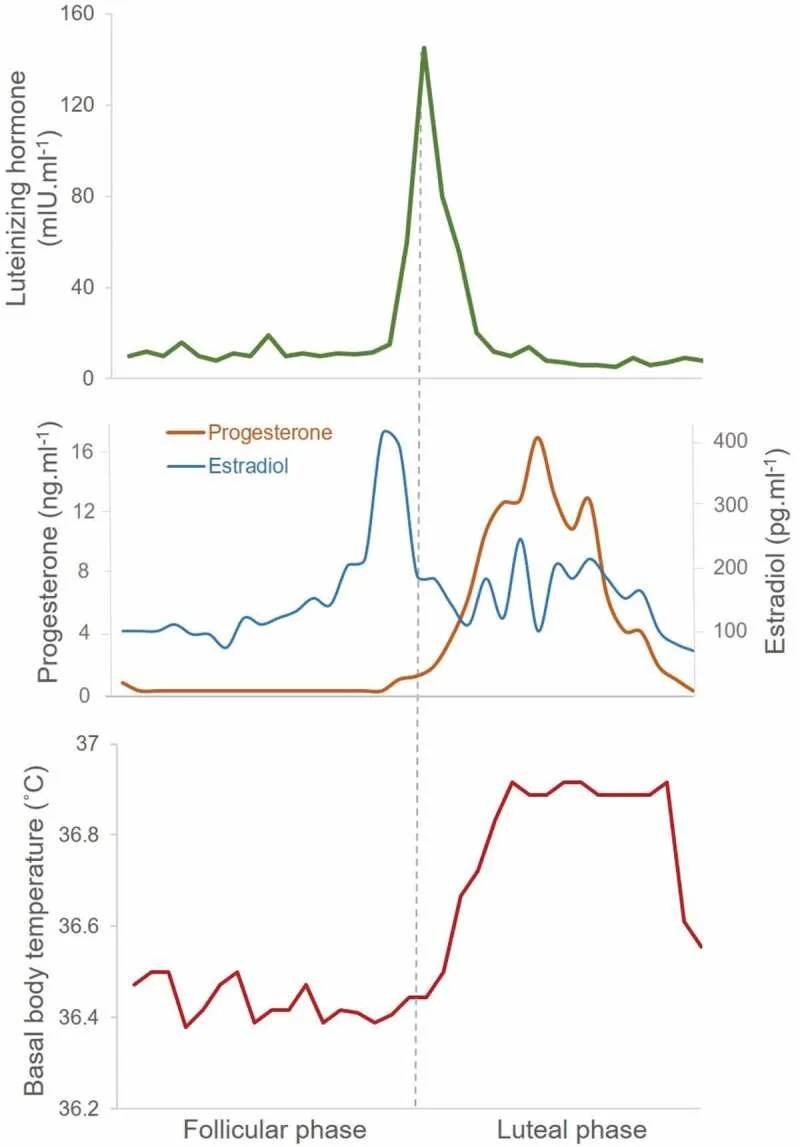Guide to BBT Tracking
Basal Body Temperature Tracking
Basal Body Temperature (BBT) Tracking, or temperature tracking for short, is one of the fertility awareness methods that can be utilised whether you are planning to start a family, looking for an alternative form of contraception, or simply wanting to have a better understanding of your hormone health and well-being.
What is Basal Body Temperature?
Basal Body Temperature (BBT) is the lowest body temperature recorded after a period of rest. This is often measured first thing in the morning. While our body temperature is tightly regulated around 37°C, there can be slight variations due to things like hormones, stress, illness, exercise, alcohol, etc. In those assigned female at birth (AFAB) who are cycling, the BBT tends to be lower in the follicular phase (pre-ovulation) and rises by 0.3°C to 0.7°C in the luteal phase or the second half of the cycle.
The Role of Hormones in BBT Fluctuations
The fluctuations in BBT are primarily influenced by hormonal changes. The rise in progesterone levels after ovulation prompts the hypothalamus to set a higher BBT in preparation for potential pregnancy. Consequently, you may feel warmer and experience increased sweating during the luteal phase. Progesterone levels and body temperature remain elevated during this phase and will only decrease with the onset of menstruation if pregnancy does not occur.
How do I start?
Get yourself a Thermometer: A digital BBT thermometer is best for accuracy. Ensure it's easily accessible as you will need to use it first thing in the morning.
Daily Measurement: Take your temperature at the same time every morning. Variations in waking times can affect your readings.
Record Your Data: Use a dedicated app or a simple chart to record your daily temperatures. Many apps can help analyze the data and identify patterns over time.
Natural Cycle: Requires a subscription and includes a free thermometer that syncs results with the app.
Kindara: Allows you to share your results with your healthcare practitioner.
Clue/Flo: Both have free versions and are great at tracking other symptoms.
Fertility Friend: Provides a free version with easy-to-read graphs.
Interpreting Your Temperature Data: Look for the biphasic pattern typically seen in menstrual cycles:
During the follicular phase, pre-ovulatory BBT typically ranges from 36.1°C to 36.5°C.
Ovulation is often marked by a brief drop in BBT, followed by a significant increase of 0.3°C to 0.7°C.
In the luteal phase, post-ovulatory BBT remains elevated until menstruation begins.
Persistent elevated temperatures for 18 consecutive days may indicate conception and early pregnancy.
Tips for more accurate data:
Measure temperature at the same time each morning prior to any physical activity.
Basal body temperature should be measured immediately upon waking to avoid any physical activity that could raise the body temperature.
At least four consecutive hours of sleep are recommended for accurate readings. Disturbed sleep can lead to elevated BBT readings.
Deviations from the usual waking time can affect BBT. Adjustments can be made: if waking earlier, increase the temperature by 0.1°C for every 30 minutes; if waking later, decrease it by 0.1°C for every 30 minutes.
Illness and alcohol intake need to be taken into consideration as both fever and alcohol consumption can disrupt normal thermoregulation, affecting BBT readings.
BBT tracking offers valuable insight into our hormonal health, menstrual cycle, and fertility. It is particularly useful for identifying the different phases of the menstrual cycle as well as confirming that ovulation has occurred (rather than predicting ovulation). Not to mention it is non-invasive, cost-effective, and can be conducted in the comfort of one’s home.
For a comprehensive view of your fertility and ovulation, I recommend tracking for at least 3 cycles and combining BBT tracking with other signs of ovulation like cervical mucus consistency and ovulation predictor kits.
Whether you are aiming to conceive, monitoring your menstrual health, or just keeping an eye on your general health, incorporating temperature tracking into your routine can be a valuable addition to your wellness toolkit.
Ready to take control of your reproductive health? Book an appointment today for personalized advice and support on BBT tracking and more!

